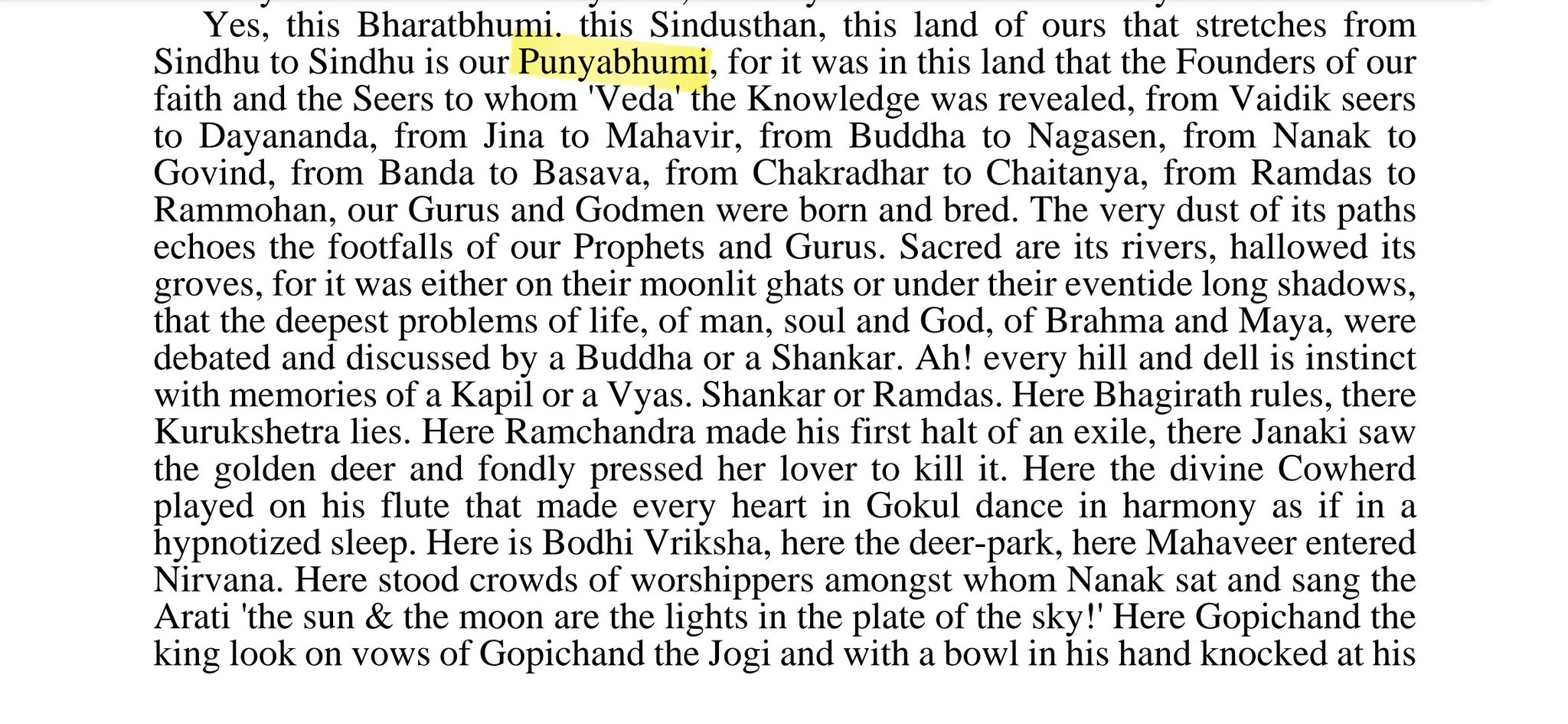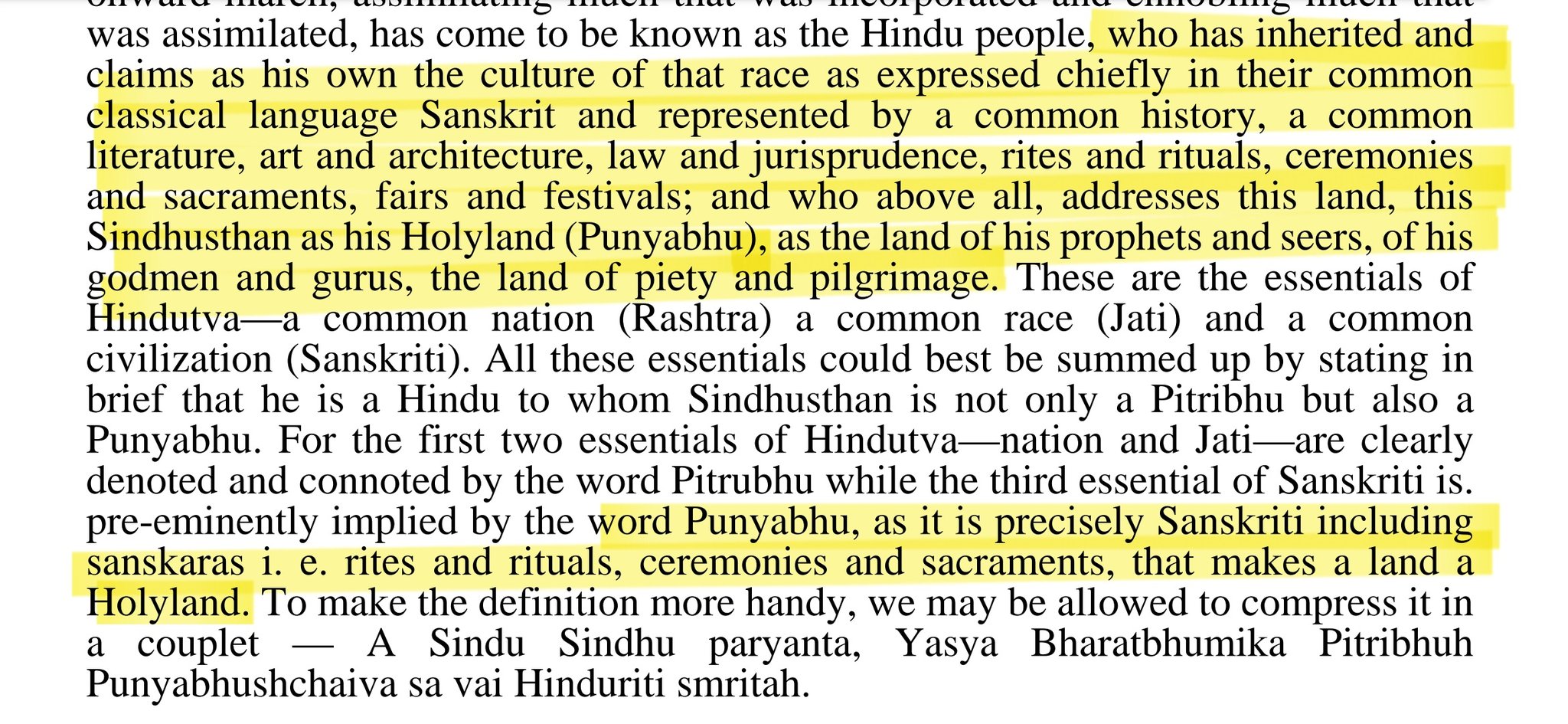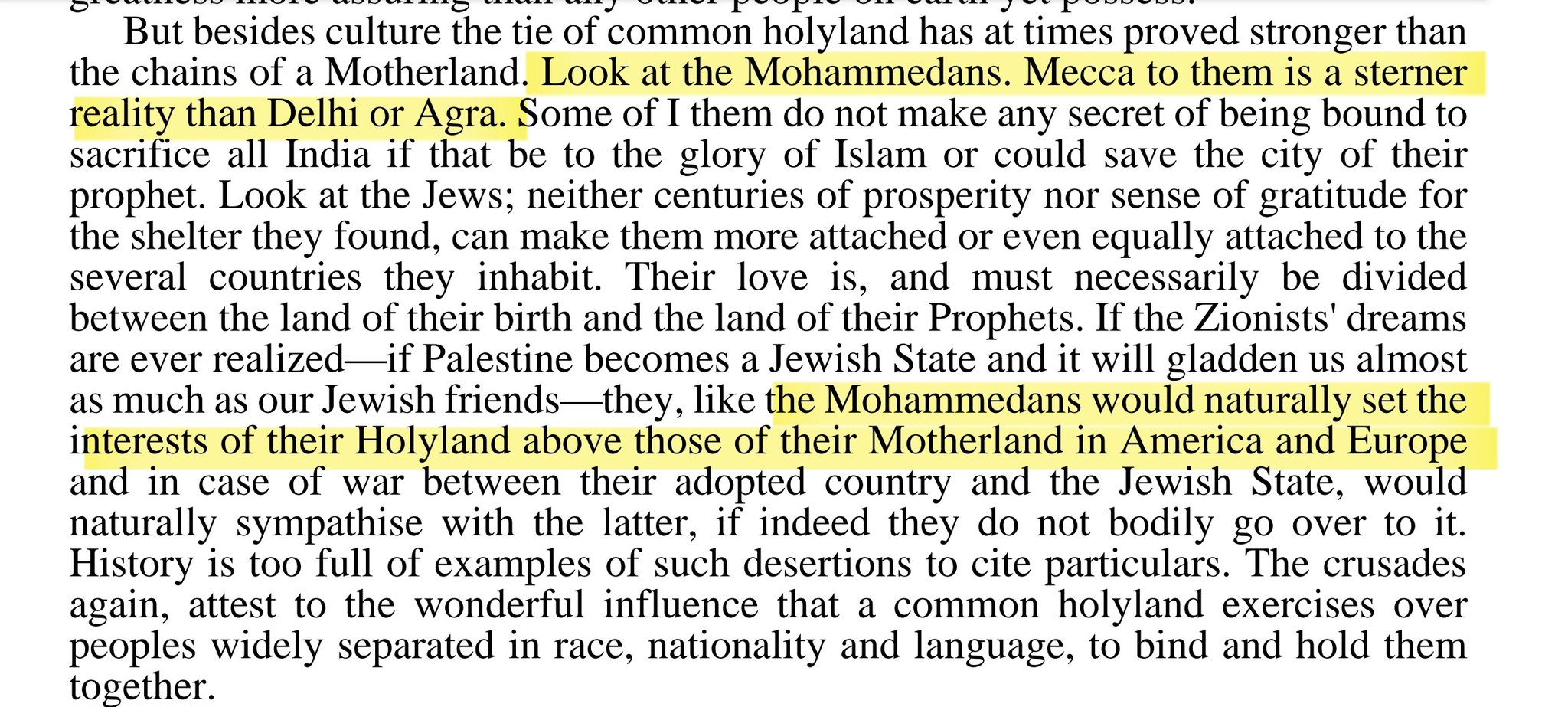The term ‘Punyabhu’ holds profound significance within the ideology of Hindutva in Bharat, as articulated by the revered thinker Vinayak Damodar Savarkar. What is its precise meaning and the controversies surrounding its application to non-Hindu communities in Bharat?
Definition of ‘Punyabhu’
Savarkar’s seminal work, ‘Hindutva: Who is a Hindu?’, deems the land stretching from the Indus River to the Indian Ocean as the ‘Punyabhu’ or holy land for Hindus. This region bears immense sanctity as it witnessed the birth of Hindu seers, the propagation of Hindu principles, and the manifestation of sacred sites that imbue every inch of the soil with profound reverence.
Significance of ‘Punyabhu’ in Hindutva
Savarkar’s definition of Hindutva hinges upon three fundamental criteria: a common nation (Rashtra), a shared ancestry (Jati), and a sacred land (Punyabhu). The notion of ‘Punyabhu’ serves as a pivotal aspect, emphasising the intrinsic bond between the Hindu identity and the Indian subcontinent.
Can India be a ‘Punyabhu’ for Muslims?
A recent contentious assertion suggests that if Indian Muslims consider mosques and dargahs within the boundaries of India as their ‘Punyabhu’ or holy land, they could be deemed Hindus. However, Savarkar’s writings emphatically refute this claim.
Refuting the Misconception:
- Ancestral Roots vs. Sacred Land: While India might be the ‘Pitrubhu’ (fatherland) for Muslims of Indian origin, it cannot be their ‘Punyabhu’ (holy land). Muslims regard Arabia or Palestine as their sacred land, where their religious principles originated and flourished.
- Partial Recognition: Even if Indian Muslims revere only the mosques and dargahs within India as holy, they cannot consider the entirety of India their ‘Punyabhu’. They would still regard Hindu shrines as belonging to ‘Kafirs’ (infidels).
- Foreign Origins: Savarkar emphasises that Muslims’ heroes, mythology, ideas, names, and outlooks bear foreign origins. Therefore, one cannot say that they consider India as their ‘Punyabhu’.
The Path to Embracing Hindutva
According to Savarkar, for a Muslim or non-Hindu of Indian origin to be considered a Hindu, they must wholeheartedly embrace the Hindu culture, literature, language, festivals, seers, and pilgrimages. By renouncing their previous cultural and religious identities, they can then claim India as their ‘Punyabhu’.
Loyalty Dilemma
Savarkar asserts that as long as a person remains non-Hindu, their loyalty becomes divided between their ‘Pitrubhu’ (fatherland, India) and ‘Punyabhu’ (holy land, outside India). Even if Abbas, a Muslim preacher of Indian origin, discovers a new sect in India without recognizing Mecca as the holy land, we cannot consider India his ‘Punyabhu’. His name, mosque, and teachings would still represent the Islamic faith, not the Hindu fold.
The concept of ‘Punyabhumi’ lies at the heart of Hindutva’s definition of a Hindu. It underscores the profound connection between the Hindu identity and the Indian subcontinent, which Hindus revere as the sacred land where Hindu principles and traditions flourished. While India might be the ‘Pitrubhu’ for non-Hindus of Indian origin, their ‘Punyabhu’ or holy land remains elsewhere, unless they fully embrace the Hindu way of life and relinquish their previous cultural and religious affiliations.








